Measuring Social Enterprise Research Exchange and Learning (MSE-REAL) in Asia
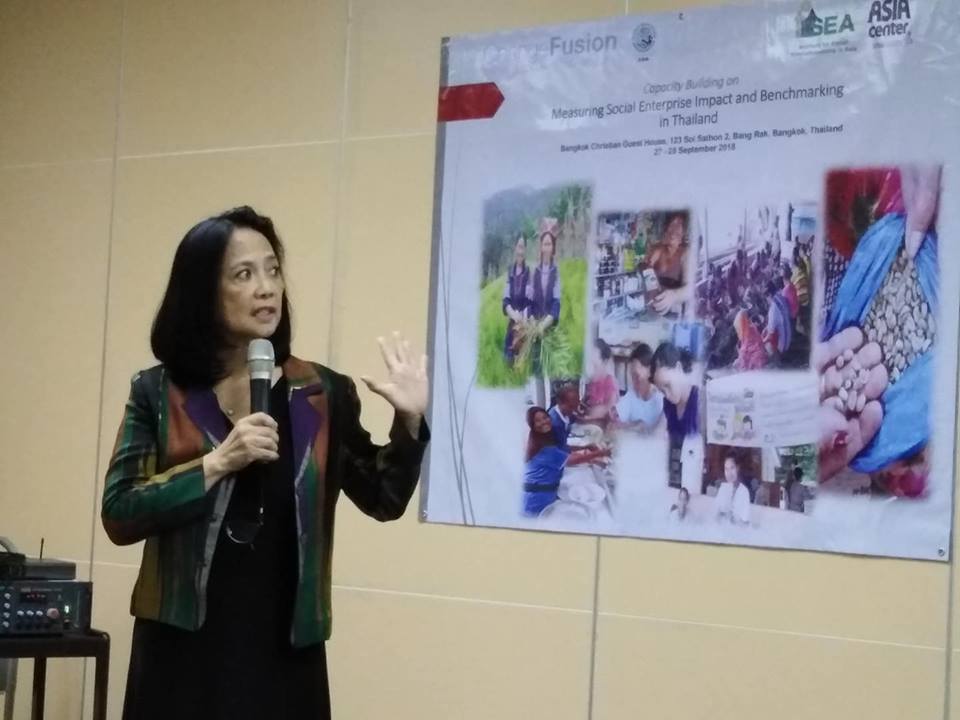
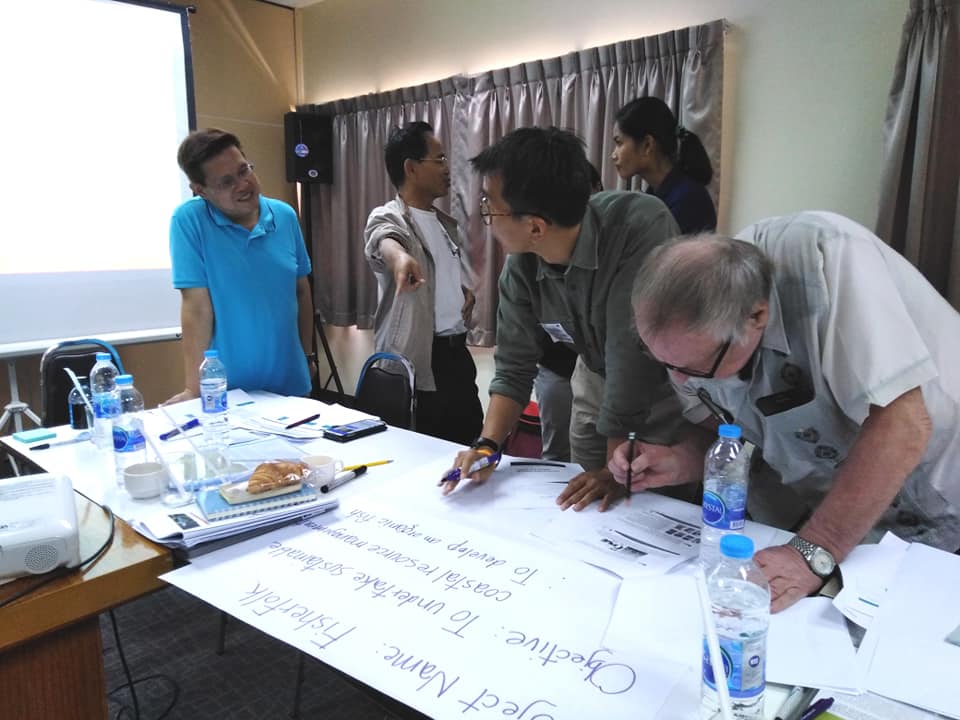
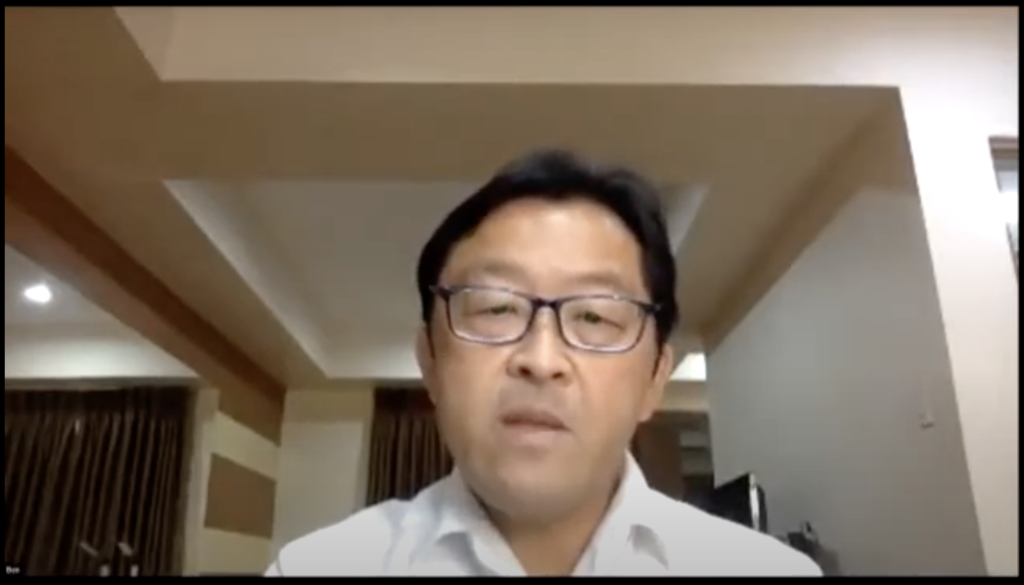
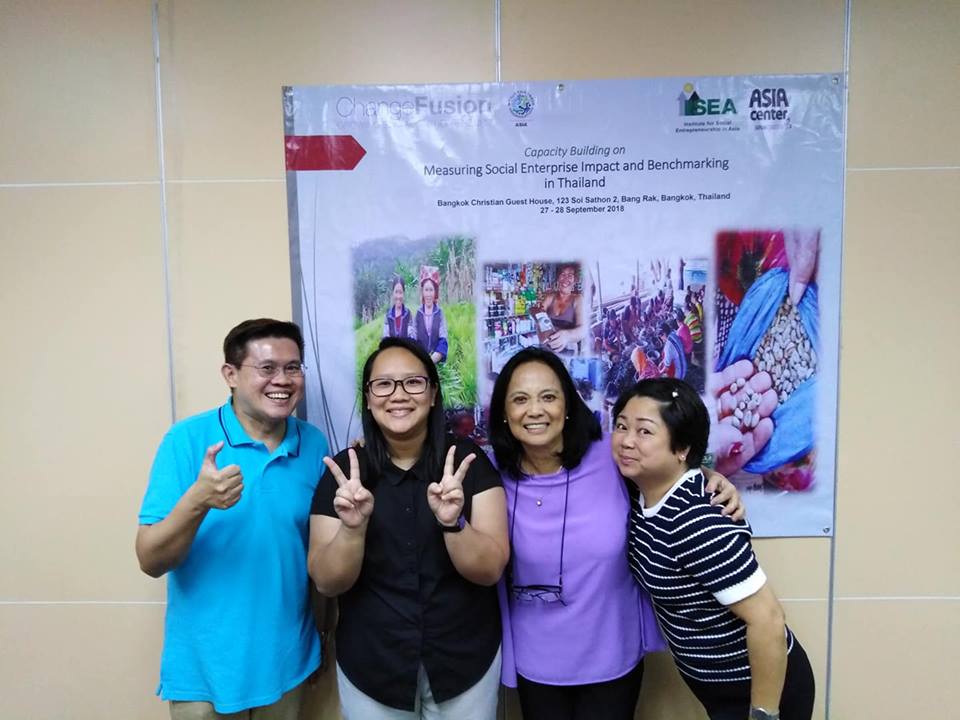
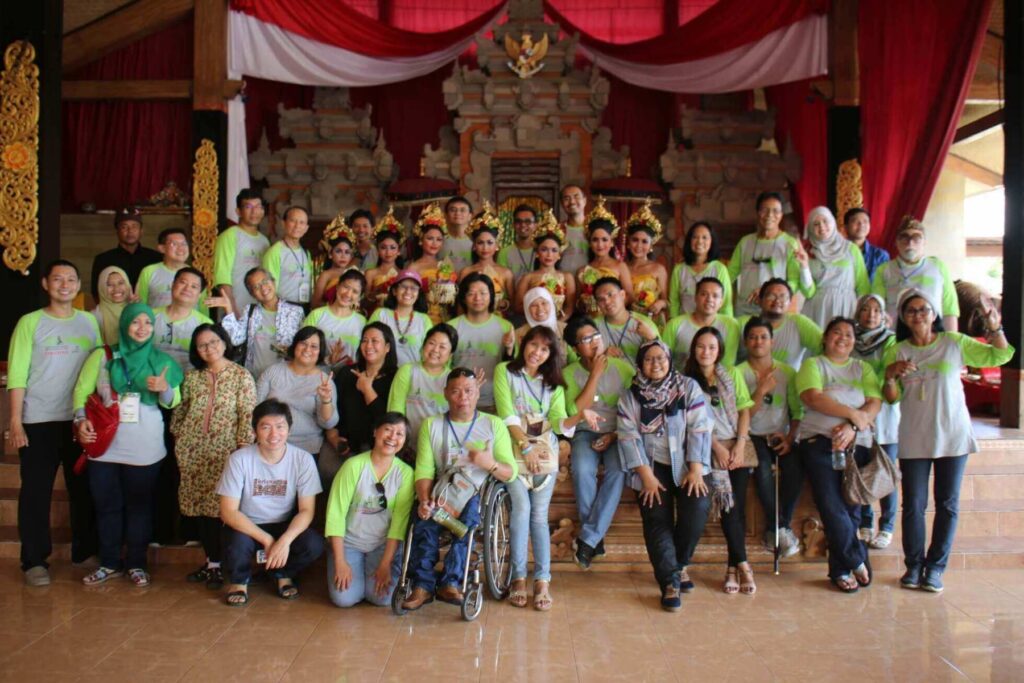
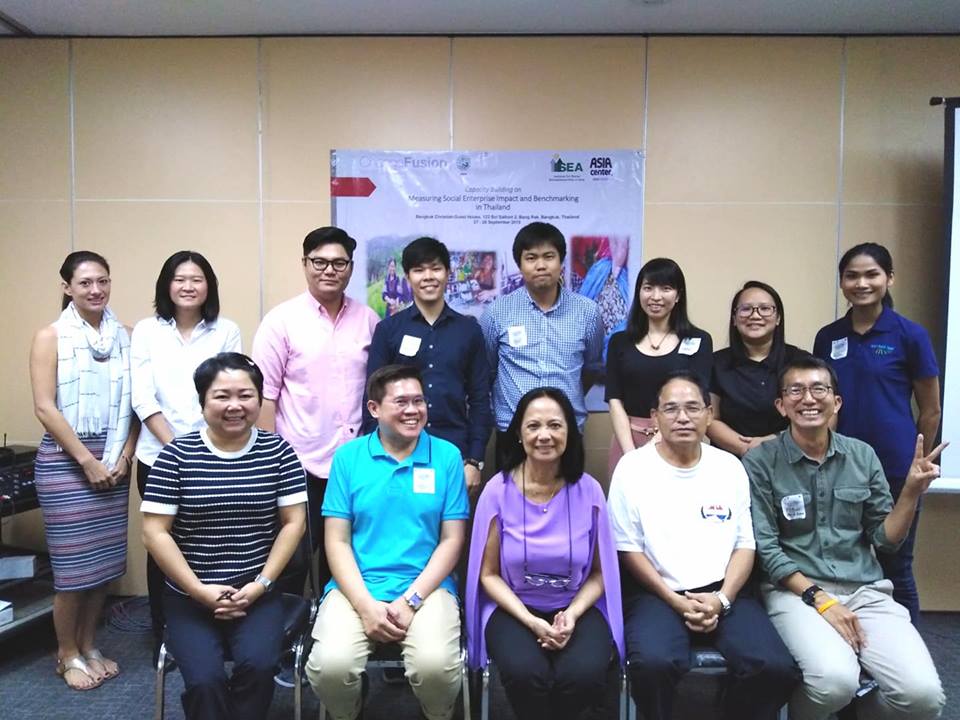
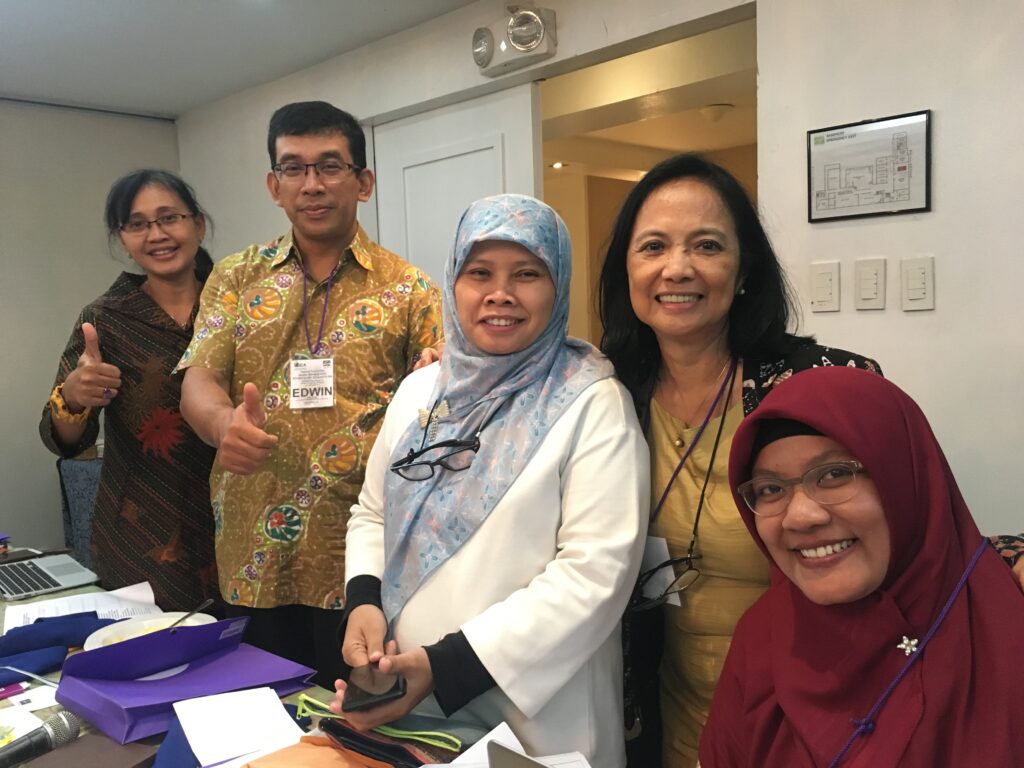
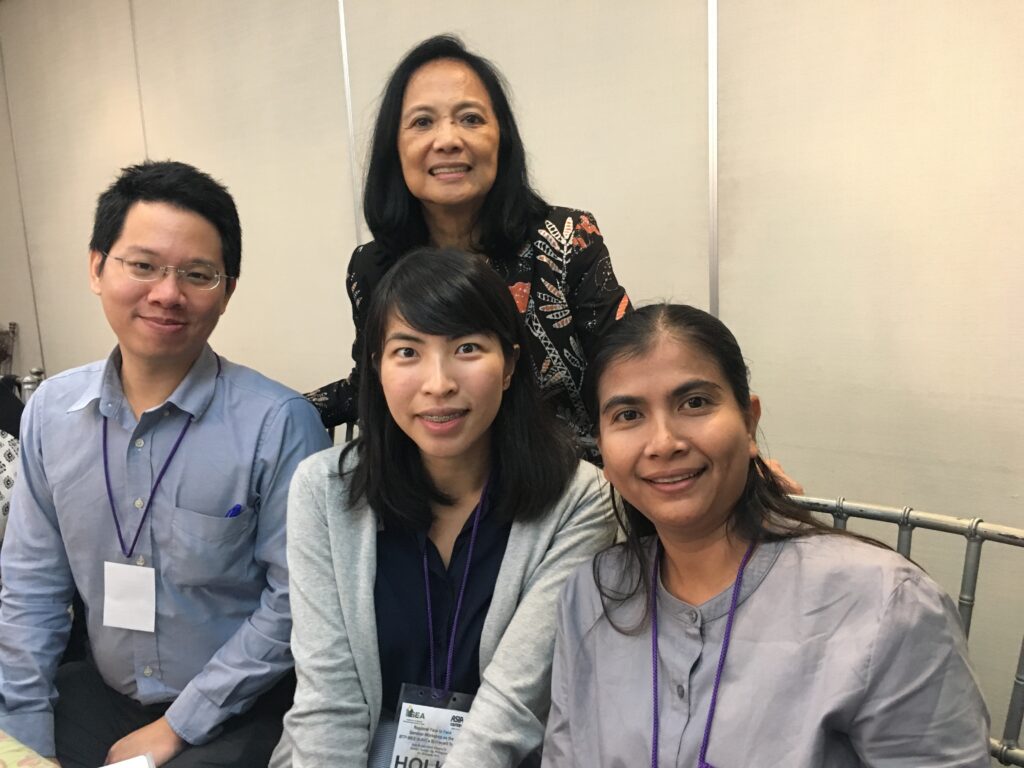
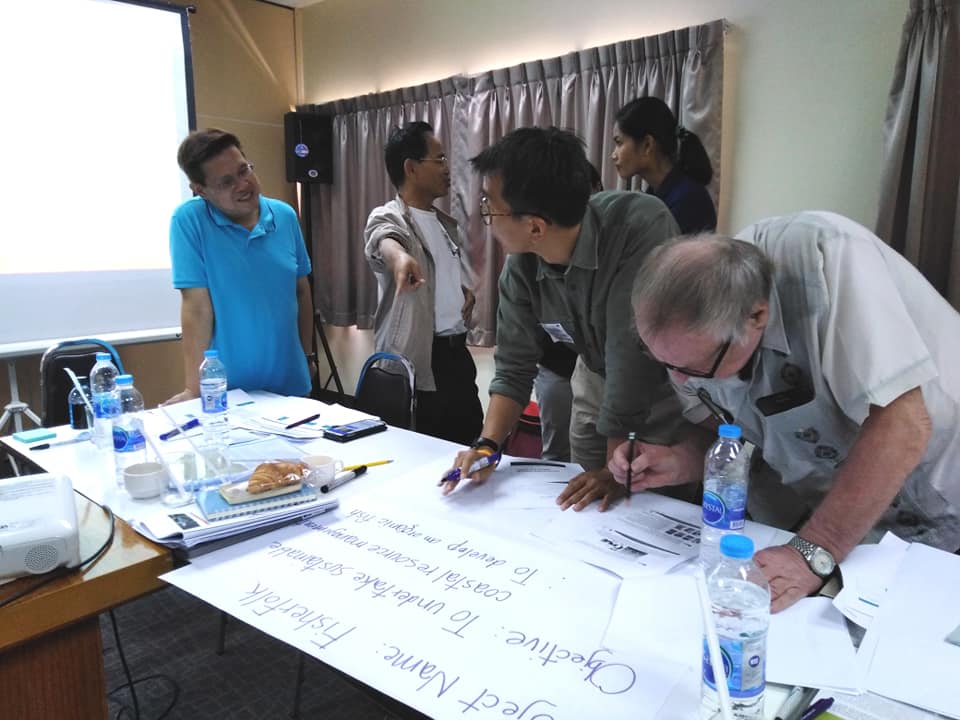
Measuring social enterprise impact was one of the major weakness and challenges identified by an ISEA-Oxfam research on the roles, challenges and opportunities of social enterprises as key players in addressing poverty and inequality in developing countries in Asia in 2013-2014. The results of the research were presented during the First Social Enterprise Advocacy and Leveraging (SEAL) Conference held in Makati City, Philippines on November 24-27, 2014 and became the basis for evolving an agenda for the social enterprise sector to contribute to the achievement of a Post-2015 Development Agenda of poverty eradication and addressing inequality in Asia.
An important project that pursued capacity building on measuring social enterprise impact was started in 2016 with the support of the Japan Foundation Asia Center. This was the Measuring Social Enterprise Research Exchange and Learning in Asia (MSE REAL), the project culminated in the 2nd Social Enterprise Advocacy and Leveraging (SEAL) Conference in Bali, Indonesia last September 26-30, 2017, with the theme, “Social Enterprise: Addressing Inequality for a Just Economy”. The 2nd SEAL Conference became a venue for a Learning Exchange on Social Enterprise Impacts and the Sustainable Development Goals. This was participated by more than 90 participants from social enterprises, non-government organizations and support institutions, the business sector and representatives from government and multilateral organizations. Prior to the 2nd SEAL Conference and as part of MSE REAL, capacity building on social enterprise impact measurement was conducted in the Philippines and Indonesia. An application of the tools of social return on investment and development indexing on social enterprises in both countries were part of the experiences shared at the 2nd SEAL Conference.
The 2nd SEAL Conference participants were enriched with the knowledge on various tools and experiences on measuring social enterprise impact and tracking the performance of social entrepreneurship initiatives shared during the conference. Participants also learned about the importance of setting standards and benchmarks for social enterprises and social entrepreneurship initiatives. ISEA’s pioneering action research based on social enterprise best practices that resulted to a set of Benchmarks for Transformational Partnerships and Women’s Economic Empowerment in Agricultural Value Chains (BTP-WEE in AVCs) in ASEAN and beyond was an important highlight.
Among others, the 2nd SEAL Conference endorsed the promotion of the BTP WEE in AVCs and building a culture and practice of measuring social enterprise impact as priorities in the next 3 years.
In pursuit of this, MSE REAL Phase II was implemented from April – September 2018. It was able to develop and pilot a Social Enterprise Scorecard that evaluates the adherence of social enterprises to a set of Benchmarks for Transformational Partnerships and Women’s Economic Empowerment in Agricultural Value Chans. Twenty five leaders/stakeholders from 9 social enterprises and their support institutions in 4 ASEAN countries were engaged in piloting and finalizing the Scorecard. It was followed by a capacity building seminar workshop in Thailand in September 2018.
Among the recommendations from the stakeholders engaged in MSE REAL Phase II were: a) the need to translate the Social Enterprise Scorecard on BTP WEE in AVCS from English to Bahasa, Thai, Vietnamese, and Filipino so that many social enterprises and their support institutions can use it and would have more buy-in within the sector; b) capacity building activities in countries beyond what were covered so far (e.g. Vietnam); c) regional conference/ learning event to share experiences and lessons on the use of the BTP WEE in AVCs Scorecard and planning ways forward including broadening the participants in the MSE REAL initiative to include other countries in Southeast Asia beyond Indonesia, Thailand, Philippines, Vietnam (possibly Cambodia and Myanmar). ISEA proposes to pursue some of these recommendations during MSE REAL Phase 3.
With MSE REAL Phase 3, ISEA aims to engage at least 40 leaders/stakeholders from social enterprises, inclusive businesses and their support institutions in at least 4 ASEAN countries to become practitioners and advocates of the BTP WEE in AVCs, using the scorecard developed by the project as measurement and communication tool. ISEA shall also capacitate 20 practitioners and support institutions in Vietnam (or another country not yet covered by MSE REAL Phase 1 and 2) on measuring social enterprise impact and benchmarking, who shall serve as catalysts for building a culture and practice of measuring social enterprise impact and benchmarking in their respective networks.
MSE-REAL Phase 3 is expected to indirectly impact on an estimated 18,000 women and men small scale producers, who are directly engaged by the 60 social enterprises, inclusive businesses and their support institutions who have been engaged and capacitated from Phase I to Phase III in the use of Social Enterprise Scorecard on BTP WEE. It is expected that these 60 social enterprises and inclusive businesses shall improve their impact on their respective small scale producers as a result of their use of the Scorecard to track and evaluate the extent to which they are serving as transformational partners to these women and men small scale producers.
MSE-REAL Phase III will build on ISEA’s success in implementing MSE REAL Phase 1 in 2017 and MSE REAL Phase II in 2018, the success of its action research that developed the BTP WEE in AVCs and its overall track record of providing training and consulting services to practitioners and resource institutions of social enterprises in the areas of strategic and operations planning and management, organizational development, stakeholder engagement, social impact measurement, as well as subsector and value chain development linked to building sustainable local economies.
It shall engage 20 leaders/stakeholders from at least 8 social enterprises and their support institutions in 4 ASEAN countries (Indonesia, Philippines, Thailand and Vietnam), in translating and piloting of the translated Social Enterprise Scorecard on BTP WEE in AVCs as an evaluation and communication tool to promote the BTP WEE in AVCs and contribute to the promotion of greater impact on women and men small scale producers.
It shall capacitate 20 practitioners and support institutions in Vietnam (or another country not yet covered by MSE REAL Phase 1 and 2) on measuring social enterprise impact and benchmarking who shall serve as catalysts for building a culture and practice of measuring social enterprise impact and benchmarking in their respective networks.
It shall convene a regional conference/learning event where at least 40 social enterprises, inclusive business and their support institutions will share their experiences and lessons on the use of the BTP WEE in AVC Scorecard and plan ways forward.
Specific outputs are the following:
- At least 40 social enterprises, inclusive businesses and their support institutions engaged in a process of sharing of experiences and lessons learned in using the Scorecard on the BTP WEE in AVCs ;
- 20 social enterprise practitioners and support institutions from Vietnam (or a country not yet covered by MSE REAL Phase 1 and 2) capacitated on measuring social enterprise impact and benchmarking;
- A user-friendly Social Enterprise Scorecard on the BTP-WEE translated into Bahasa, Thai, Vietnamese and Filipino for wider promotion and buy-in within the sector
Pandemic and MSE REAL Phase 3
Based on consultations with members and partners and in consideration of the uncertainties and risks related to the COVID-19 international health emergency, as well as the challenges and restrictions in terms of travel and participation of affected countries, ISEA and JFAC agreed to hold a webinar series leading up to a virtual regional conference. To make the sharing and exchange more relevant, it was agreed that the theme of the webinar series and conference be on the impact of COVID19 on social enterprises and the poor in Asia (with a focus on Southeast Asia), and the role of social enterprises as transformational partners of the poor in recovery and building back better to accelerate the Sustainable Development Goals. Sessions on the original theme of measuring social enterprise impact and benchmarking are retained where relevant, but it will not be the main focus. The platform promoting the Benchmarks for Transformational Partnerships and Women’s Economic Empowerment in Agricultural Value Chains (BTP WEE in AVCs) and the learning event on the scorecards will be launched on September 16, 2020, as they can be considered part of the framework and tools for building back better.
COVID19 Social Enterprise Response and Visioning Effort in Asia (SERVE) Webinar Series leading up to a Virtual Social Enterprise Advocacy and Leveraging Conference on September 16-17, 2020 The COVID 19 SERVE Webinar Series shall be composed of 16 webinar sessions of 1 hour 30 minutes each every Tuesday at 4PM Manila time via Zoom starting May 26 up to September 8, 2020 and 5 Roundtable Discussions of 1 hour 30 minutes each It shall feature webinars on the responses to COVID19 by social enterprises and social enterprise resource institutions as well as roundtable discussions on relevant regional multi-stakeholder platforms for recovery and building back better towards accelerating the Sustainable Development Goals.
3 Webinars on Social Return on Investment (SROI) – Benchmarking (featuring the BTP WEE in AVCs Scorecard as a Development Index, Impact of the COVID 19 Pandemic on Women and Men Small Scale Producers will take place in August-September 2020. The translation of BTP WEE in AVCs Scorecards will be completed in time for the closure of the project.
